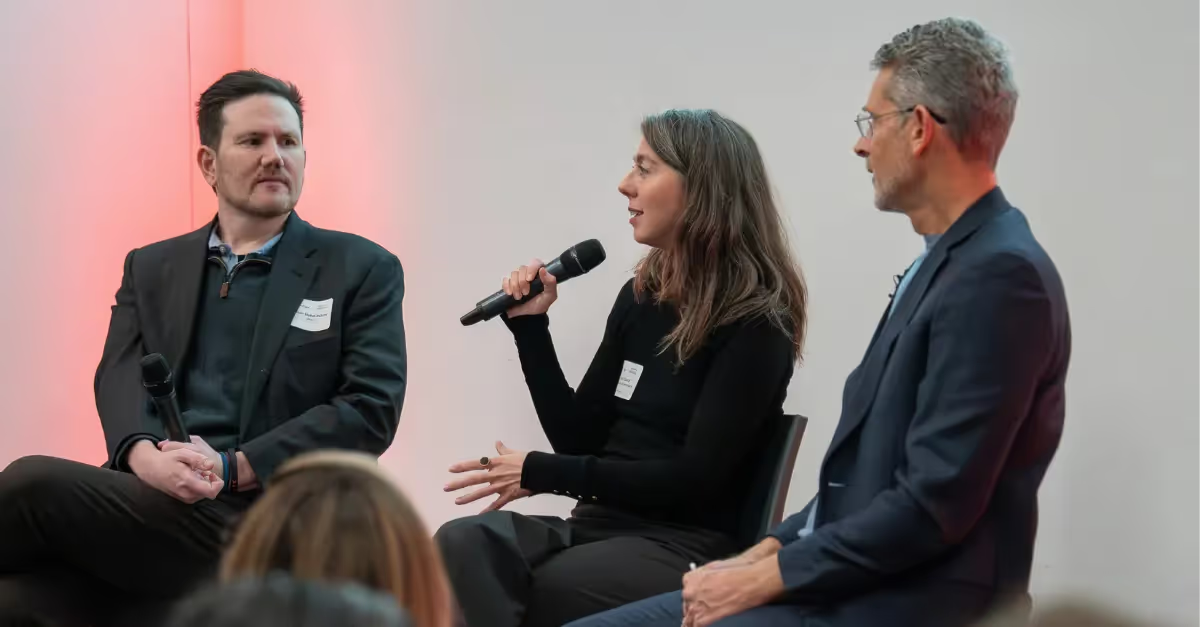Hope for the Future of Data-driven Organizations at CDOIQ Symposium
.avif)
The emergence of artificial intelligence represents a paradigm shift not only for technology, but also for business structure and operations. As executives across the globe scramble to adopt AI strategies, organizational priorities are shifting and old roles are taking on newfound importance. At the center of this change is the chief data officer (CDO).
AI-driven changes were among the most popular topics at this year’s Chief Data Science Officer and Information Quality (CDOIQ) Symposium, which took place in Cambridge, Massachusetts, July 15-18.
Now in its 18th year, CDOIQ has consistently provided CDOs with a space to discuss strategies (and discuss hurdles to) success in their roles. While some attendees noted that CDOs are often charged with leading digital transformation but given minimal authority to do so, the override feeling at CDOIQ this year was that things were looking up.
“I’m hopeful with the AI push, given the necessity of quality data, that organizations will structure the CDO role correctly, with proper executive support and authority,” said Institute for Experiential AI Executive Director Usama Fayyad. “If organizations don’t do that, they’ll basically have no hope and be at the mercy of huge AI companies and their unwieldy, super-large models.”
Fayyad, who held his first CDO title 20 years ago, spoke with other CDO veterans in a panel titled, “Fifteen Years since its Creation: What Comes Next for the CDO/CDAO Role in an AI Future?"
Fayyad was not alone in identifying the present moment as an inflection point for the industry. Randy Bean, the founder and CEO of NewVantage Partners, a data and AI leadership advisory firm, started the panel by showing results from a survey of Fortune 1000 executives indicating more organizations believe having a CDO is necessary in 2024 than ever before. Respondents also reported progress establishing a data culture and using data to drive innovation. The results aligned with what CDOs are seeing in the field.
“I think the CDO position is in a transition and will change markedly over the next five to ten years,” said panelist Todd James, the chief data and technology officer at retail data science company 84.51. “Programming languages are getting easier, sciences are getting easier and more accessible, we’re seeing more emphasis on training and upskilling, and universities are adapting. So we’re going to have a more analytic and data-aware workforce, and we already know the real magic happens when you have integrated data technology and business teams that are executing where the business needs them most.”
The Evolution of the CDO Role
Fayyad became one of the first chief data officers at any organization when he took the position at Yahoo in 2004. He went on to make a huge impact as he managed Yahoo’s data strategy, and he assumed another CDO role at Barclays in 2013, when the title was becoming more common. Those experiences give him a unique perspective on how organizations should structure the CDO role for success.
“I strongly believe to be effective as CDO, the position needs to have an execution arm where you actually have ownership and responsibility to deliver,” Fayyad said. “The biggest reason to have a CDO is because what you can do with data doesn’t match what you are doing with data.”
Beyond authority, CDOs must also possess business expertise and a vision for how disparate data streams hold potential for impactful new products and initiatives in their businesses.
“There’s a reason the strategy isn’t the same everywhere: It’s all about where the leverage in the business is and making sure the data is available to drive business decisions to create better customer experiences,” said panelist Amy Lenander, CDO at Capital One. “That’s where I start when I think about data strategy.”
Algorithms are also always changing, and CDOs must be able to constantly match data and AI capabilities with organizational goals.
“An important quality for a CDO is agility and being nimble to be able to react to whatever is coming at the business, and to respond as leaders shift their priorities,” said Ronke Ekwensi, who recently became T-Mobile’s vice president for data and AI education after holding the CDO title for more than three years.
That was also a point made at the first-ever Chief AI Officer Summit, which was hosted by the Institute for Experiential AI and the Chief Data Officer (CDO) Club last year.
AI and Its Discontents
A historic challenge for CDOs has been getting executive buy-in and decision-making authority. But AI represents a turning point in the narrative around data. At a minimum, AI has every CEO’s attention, and as Fayyad is fond of saying: No data, no AI.
Fayyad believes organizations seeking to establish an effective AI strategy need someone to take ownership of implementing that strategy across the organization.
“The lasting asset in the age of generative AI is data, not techniques,” Fayyad said. “Generative AI will have a huge economic impact, but the ability to capture the right data, which most organizations don’t do, makes a huge difference, and to do that successfully you need someone who’s driving the collection and management of the data.”
For James, who’s evaluated at 84.51 based on the ability of AI to drive business value, that responsibility has fallen to the CDO. He’s not alone. Fortunately, the panelists believe the added responsibility will also come with more resources.
“CDOs used to have to fight for money to clean data, because the data was terrible, or you’d have a population of IT workers who’d spend 80 percent of their time cleaning data,” Ekwensi says. “What generative AI does is put the tools in the hands of the domain experts who actually do the marketing or finance or research, and they get to play with these tools to try to solve problems, and they see firsthand how bad the data is. My hope is that it starts a groundswell of investment in data quality.”
Even with adequate resources, the panelists agreed that leadership is a prerequisite to success in the CDO role of the future.
“Ideally, we’ll get a generation of CDOs who understand AI and its needs, who understand how to manage data pragmatically, who have the business expertise to understand the CDO is not a technology role, but that half of the role is a business role and understanding business pains and use cases,” Fayyad said. “I’m describing a bit of a unicorn, but the best way to create a unicorn is to build a capable team with strong leadership, and that’s what the CDO role should evolve into.”
Learn more about the Institute for Experiential AI’s work by subscribing to our newsletter or checking out the ways we partner with organizations to build AI solutions.




